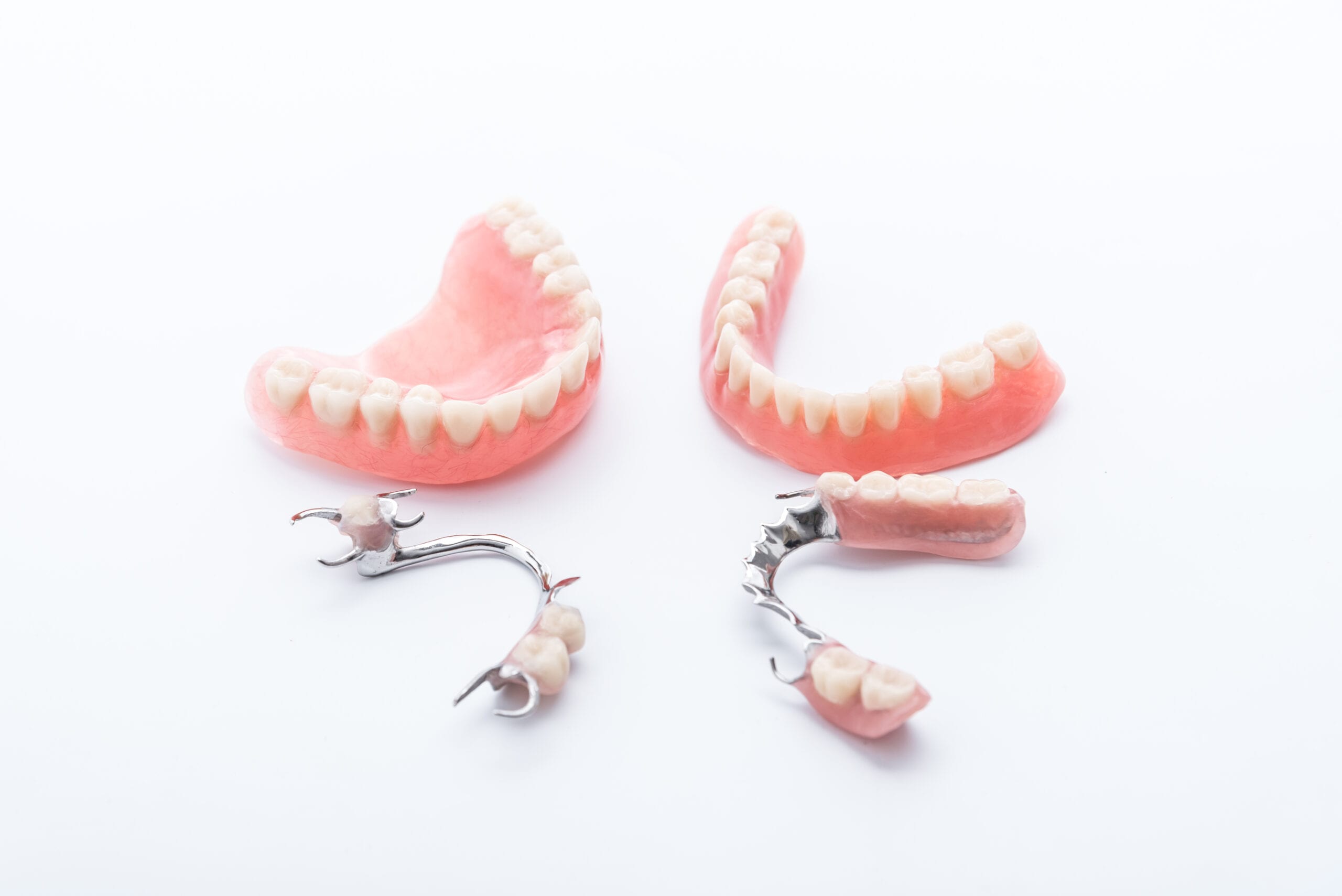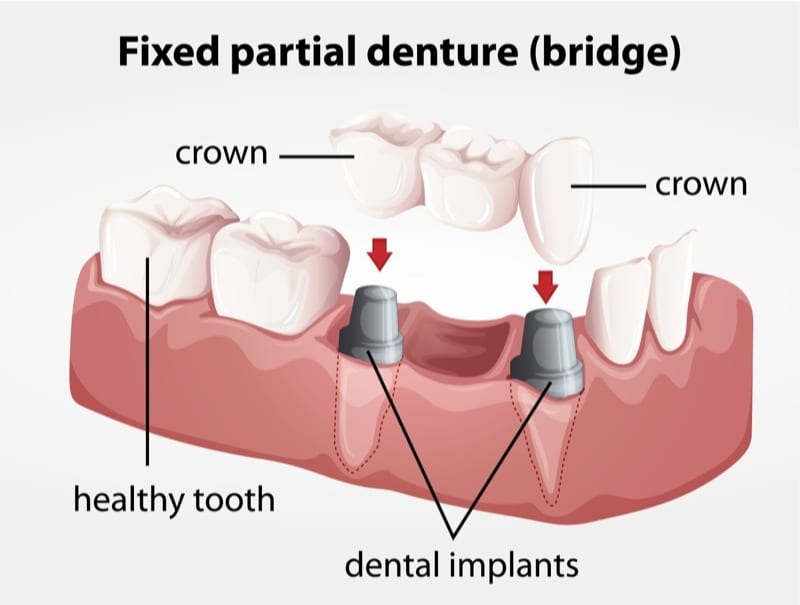If you are complaining of a badly broken-down tooth or a gap between your teeth, your dentist will immediately offer you prosthetic solutions such as having a crown fitted, a bridge or maybe suggest having a denture constructed. But what are crowns, bridges, and dentures?
Crown
A Crown is a cap which encircles a natural tooth that is broken, brittle or decayed. A dental crown can be made from metal, porcelain, or ceramic. A crown is a fixed solution.
You will mostly need a crown in the following cases:
- Root canal-treated teeth will become very brittle and a crown is needed to protect the remaining tooth structure.
- As a cover over a dental implant.
- A crown can be used if you have a severely discolored tooth.
- Severely decayed teeth where simple feelings will not be efficient enough to protect the tooth from any further damage.
The Procedure
To fit a crown, your dentist will remove parts of the tooth structure that is unrepairable, then an impression is taken and sent to the lab to fabricate the crown. In your final appointment, The fabricated crown will be fitted and cemented over your tooth after making sure that it completely resembles your natural teeth. Your dentist will perform some height and function adjustments to ensure the new crown will perform correctly and desired aesthetics, form, and function are achieved.
Bridges
Bridges are used to close a gap in your mouth; it consists of an artificial tooth that is secured or held by two abutments (crowns) that covers the neighboring teeth for bridge support and stability. Bridges are a fixed solution and they will usually substitute one missing tooth or two neighboring missing teeth.
Longterm problems with missing teeth
It is crucial to restore any space left due to missing or extracted teeth within your mouth; not doing so will lead to the following:
- The adjacent teeth will drift and tilt towards that gap, which will lead to improper alignment of your teeth.
- Food will be impacted on that space causing gum inflammation and decay to the neighboring teeth.
- A bridge will restore your smile and self-confidence, especially if the missing space is at your front teeth.
There are two types of dental bridges. The conventional type, in which the neighboring teeth of the gap are used to secure the bridge and the false tooth that would fill the gap. As with most typical crown procedures, the crown will be fitted atop a prepared tooth, while a false tooth will replace the gap. As a result, retention and stability will be provided to your bridge. Secondly adhesive bridges, where an artificial tooth replaces the missing tooth and two wings branching out of this tooth will be glued to the back of the neighboring teeth, in this case we use a very strong adhesive as glue.

Dentures
are removable prosthetic devices that snuggle your gum and hard tissue to replace missing teeth. They can be complete dentures that consist of a full set of lower or upper teeth or both, or it could be a partial denture only.
The benefits of having dentures are:
- The process of chewing will be much easier, the denture will be stable inside your mouth, and you can enjoy your food without it being impacted in the gap.
- Having large gaps in your mouth due to loss of teeth will directly affect one’s self-image, a simple thing like smiling or speaking can be embarrassing for some, and if the patient is completely toothless their face will appear sunken or saggy, so a well-fabricated denture will help give you the facial tone that is needed and help to restore your smile.
- Dentures are considered an alternative to having implants done, they are a non-surgical solution and they are more feasibly affordable.
Denture Fitting Process
The denture fabrication and fitting require several appointments with your dentist. The first visit will consist of a consultation, evaluating options, and taking measurements along with imprints. This is followed by several try-ins appointments where your dentist will make sure your denture is well fitted and that it resembles your natural teeth regarding shape and color. In the last appointment, the denture will be delivered to you, while your dentist will give you instructions on how to maintain your denture.
Why is visiting the dentist so important?
Visiting the dentist regularly will not only help keep your teeth and mouth healthy, but will also help keep the rest of your body healthy. Dental care is important because it:
- Helps prevent tooth decay
- Protects against periodontal (gum) disease, which can lead to tooth and bone loss
- Prevents bad breath – brushing, flossing, and seeing the dentist regularly will help reduce the amount of bacteria in your mouth that causes bad breath

